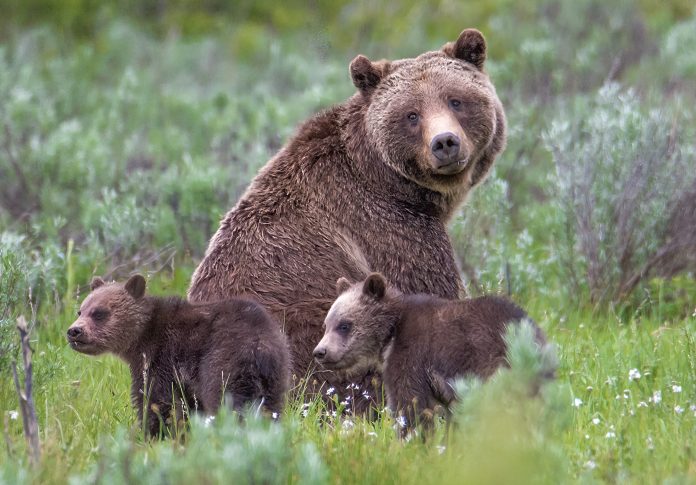
Victory! Court Overturns Federal Authorization To Kill 72 Grizzly Bears Near Yellowstone National Park
By Lauren Lewis
You can help all animals and our planet by choosing compassion on your plate and in your glass. #GoVeg
RELATED ARTICLES
Banning Cruelty: New Legislation Aims To Ban Octopus Farming In The U.S.
New bipartisan legislation has just been introduced in the U.S. to ban commercial octopus farming and prohibit imports of farmed octopus from foreign countries.
The...
Outrage In Yellowstone! Grizzly Bear Killed By Wildlife Officials & Left With Head & Paws Cut Off
Photo by: Trisha McFarland / Cowboy State Daily
A photo of a dead grizzly bear with its head and paws cut off has caused an...
Inside Florida’s Illegal Horse Meat Trade: Undercover Footage Shows Racehorse Being Shot & Butchered
A heart-wrenching discovery of illegal horse slaughter has emerged, with video footage exposing the tragic killing of a racehorse named 'Funny Biz,' who was...
Popular stories
News
Good News! Six Cross-Fostered Mexican Wolf Pups May Be The Key For The Recovery Of Their Species In Arizona & New Mexico
Photo of Mexican wolf pups by Susan Dicks/Mexican Wolf Interagency Field Team
Last week, the Mexican Wolf Recovery Program announced that it had reached a major...
News
Breaking! Animals Asia Rescues Last Four Performing Moon Bears From Hanoi Central Circus In Vietnam
Animals Asia has rescued four moon bears, also known as Asiatic Black Bears, from the Hanoi Central Circus in Hanoi, Vietnam. As a sign of a remarkable change in...
News
21 Animals & Plants In The U.S., Including 8 Native Hawaiian Birds, Have Gone Extinct
The U.S. Fish and Wildlife Service finalized a rule yesterday removing 21 species from the list of threatened and endangered species under the Endangered Species...


